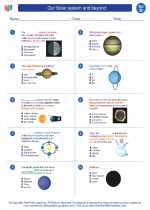Parasites: A Detailed Explanation and Study Guide
What are Parasites?
Parasites are organisms that live on or inside another organism (host) and obtain nutrients at the host's expense. They can cause harm to the host and may lead to various diseases.
Types of Parasites
Parasites can be classified into three main groups:
- Protozoa: These are single-celled organisms that can cause diseases such as malaria and giardiasis.
- Helminths: Also known as parasitic worms, helminths include tapeworms, roundworms, and flukes.
- Arthropods: These are parasitic insects such as ticks, lice, and fleas that can transmit diseases to their hosts.
Life Cycle of Parasites
Parasites have complex life cycles that often involve multiple hosts. The stages of a parasite's life cycle can include egg, larvae, and adult forms. Understanding the life cycle of parasites is crucial for their control and prevention.
Effects of Parasites on Hosts
Parasites can have various effects on their hosts, such as:
- Malnutrition: Parasites consume nutrients from the host, leading to malnutrition and weakness.
- Disease Transmission: Some parasites can transmit diseases to humans and animals, causing significant health problems.
- Organ Damage: Parasites can damage the organs of their hosts, leading to long-term health issues.
Prevention and Control of Parasites
Several measures can be taken to prevent and control parasitic infections, including:
- Good Hygiene: Practicing good hygiene, such as handwashing and proper sanitation, can reduce the risk of parasitic infections.
- Vector Control: Controlling the insects or arthropods that transmit parasites can help prevent their spread.
- Medical Treatment: Treating parasitic infections with appropriate medications and following preventive measures recommended by healthcare professionals.
Study Guide
Here are some key points to remember when studying parasites:
- Identify the three main groups of parasites and examples of each.
- Understand the life cycle of parasites and how they reproduce.
- Explain the effects of parasites on their hosts and the potential health risks associated with parasitic infections.
- Describe preventive measures and control strategies for parasitic infections.
By understanding the nature of parasites and the ways to prevent and control their spread, we can work towards minimizing the impact of parasitic infections on human and animal health.
[Parasites] Related Worksheets and Study Guides:
.◂Science Worksheets and Study Guides Fourth Grade. Our Solar system and beyond

 Worksheet/Answer key
Worksheet/Answer key
 Worksheet/Answer key
Worksheet/Answer key
 Worksheet/Answer key
Worksheet/Answer key
 Vocabulary/Answer key
Vocabulary/Answer key
 Vocabulary/Answer key
Vocabulary/Answer key
 Vocabulary/Answer key
Vocabulary/Answer key
